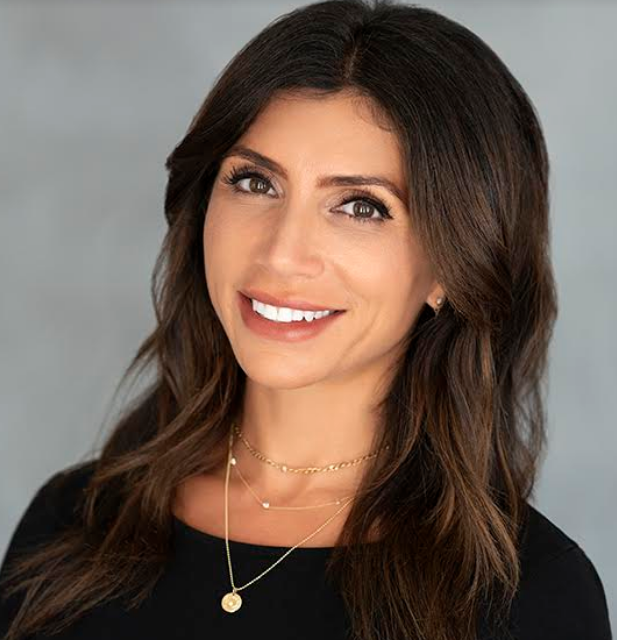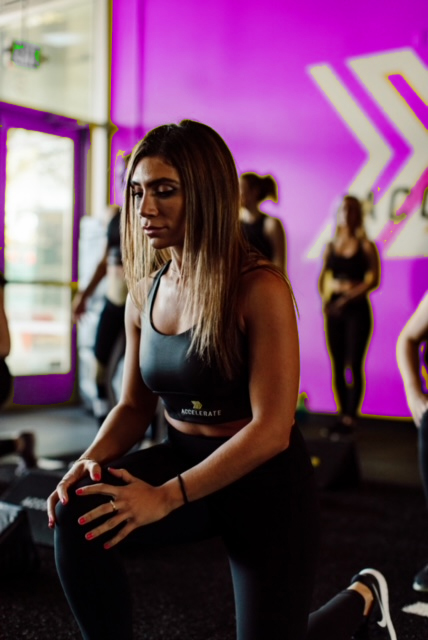“Women in tech catalyze a focus on pay equity, gender diversity, race diversity, thought diversity, and more. We also keep pushing to invest in the candidate pool by advocating for youth access to education that we did not have, so we have more representation in the future.”
Tanya Fàddoul, Vice President of Product Management and Engineering, DocuSign
We sat with Tanya Fàddoul, VP of product management and engineering – incubations at DocuSign. Tanya is an experienced and passionate leader with plenty of experience in corporate technology, often as the first or only woman in the room.
DocuSign’s incubations team builds and operates solutions that cross cultures, and legal jurisdictions, and impact people around the world. Like Valence, the group is chartered with designing and developing never-been-done-before solutions.

Here are excerpts from our conversation about women in technology.
It’s so great to connect with you! Why don’t we start with what you are doing today – what work are you doing for Docusign?
I’ve been with DocuSign for eight years, and since joining the company, I’ve worked on everything from sales to operations, to product management – I took a very non-linear path to where I am today!
I lead a phenomenal customer-obsessed product engineering group called Incubations, which is focused on cutting-edge and innovation. Our goal is to continuously learn from customers, co-develop with them, incorporate new capabilities, and pursue new market opportunities so people can realize innovative experiences as they go. We experiment with and on behalf of customers, and push the limits of what the platform can do.
I think a lot of women in tech can relate to your unconventional path. How did you get started in technology?
As I mentioned, it’s been very nonlinear! The short of how I got this start is customer obsession. I always go back to the customer and figure out how technology could catalyze a solution for a problem. I don’t have a programming background and don’t know how to code, but I am interested in how to solve customer problems, and how to lead people with the knowledge to solve them.
My family is made up of first-generation immigrants from Lebanon, and my parents fulfilled our American dream by starting out as entrepreneurs who also served SMBs.
My first job was an internship for a real estate company, and I was their fax girl. I would literally fax documents. Could you imagine having a fax person full-time in this day and age?
When I graduated from college, I sold advertising for a local CBS affiliate and worked in television. In 2010, a colleague from the CBS corporation made the move to Amazon and encouraged me to do the same. We felt that I could make an impact on the sales program since it was like a media advertising sale. So, I helped amazon launch Amazon Local which was a Living Social competitor that supported small businesses. I’ve been in how tech can change the world, ever since.
What can you tell us about the people who paved the way for you? How did mentors factor into your success?
Mentorship played a huge role in my career! Some of my heroes are my family, my heritage, those who came before me, and my community.
A standout mentor is Tom Casey, Docusign’s SVP of technology. He was a fierce advocate, sponsor, and mentor for a lot of my career growth. He put me in rooms and gave me a seat at the table when I didn’t have one. He recognized that someone like me, who can see every part of a business function, would add more value to product engineering. He told me that I don’t need to know how to code, I need to get the engineers jobs to do. He recognized that knowing how to get our technical team the most valuable engagements with customers would be my strength.
From there, my next hero is Leah McTiernan, GVP of Solutions Engineering. She partnered with me to make customer-related inputs from the field accessible and structured. She’s been a 10-star business partner and a female leader who challenges me, supports me, and gets creative with me. Together, we bring the collective bright minds together to solve problems and empower successful outcomes.
I think women have a hard time saying this, but I am my own hero. I often struggle with imposter syndrome, so I challenge myself to step back and acknowledge that I was resolute, resilient, curious, and an advocate to get to where I am. I paved the way for myself in an environment where women often struggle, which is in corporate technology. And while many things have changed for the better, a lot has stayed the same. So I am my own hero and I have lots of work to do!

Let’s talk about what’s around the corner in technology. What trends are you seeing?
The average person wants to be able to build, decipher, drive, and manipulate data so it enables them to do something, whatever it might be. So low-code and no-code is a huge trend. AI-assisted experiences will be everywhere, and consumers will learn to expect them. We will just interact with things that anticipate our next move that guide, nudge, and communicate with us.
I’m very interested in biometrics for identity verification. Gone are the days of passwords. We can already go to an airport and never use our photo identification. How does that impact industries like government, retail, and banking?
One trend that’s easily overlooked is in healthcare technology. What was achieved with COVID vaccines was achieved through technology. There’s now talk of a COVID pill – think about the speed in which this happens! Drug trials will accelerate, and technology will influence how we think about and deliver health and wellness, supplements, substitutes, and vaccinations.
Remote and hybrid work are here to stay, so we need to improve the way we work and be thoughtful about how this impacts women. Women often give up their at-home workspace so male partners can use the better workspaces. This is partly because men make more money than women, so pay inequity explicitly factors into remote and hybrid work strategies. When the breadwinner always gets the good desk, what does that do to us? It takes us ten steps back unless we have the tools to change it! Bringing technology to empower anywhere work is happening is a game changer.
What tech does the world need now more than ever?
My belief is that the world is at a sustainability turning point and technology is part of the solution. The business community needs to make sure that tech is used responsibly and sustainably. Tech needs to be developed and deployed to make the real world more sustainable by reducing Co2 emissions, developing cleaner and more reliable transportation, focusing on healthcare, energy consumption, and reducing waste in industrial production.
We need to use the power of technology not just for entertainment and consumerism, but to impact tangible progress in the real world.
Let’s talk about how to improve tech for women. Do you think tech is changing for women?
The percentage of female STEM graduates is about 19% and women hold only 24% of computing jobs. Women leave the tech industry at a 40% higher rate than men, and now women are trying to perform without the right workspace, which is not sustainable.
There is so much room for progress, but there is a pay gap that holds us back. Pay equity has become more of a focus, and companies are more regulated in reporting on equitable pay structure. The more we talk about the pay gap, the more balance and benefits women will be able to receive in the workplace.
What is the one thing you wish people knew to support women in technology?
We have so many organizations working to bring the curriculum to K-12 systems, federally and locally. Get involved, donate, and get kids involved in Code.org and their Hour of Code, which is offered everywhere. Make STEM interesting to girls early on.
There is an infinite amount of space for all working women in the workforce. Women set an example by supporting women, amplifying voices, mentorship, and sponsoring women. And as we support one another, we must realize that men are a part of this journey. Make people aware, and bring in allies and advocates that are part of this mission. Everyone can encourage women to invest in themselves when they are fighting for that seat at the table.
You spoke a lot about women supporting each other. Does being a woman leader in tech come with additional responsibilities?
Yes. Being a female leader in tech is a huge responsibility that I hold near and dear. Paving the way for others is what I owe to those who paved the way before me. Being a sponsor to people who are high potential, and opening doors are my obligation and responsibility. If a young person, woman, or underrepresented person wants to engage with me to learn from me and my network, I will make time for them because this is my commitment to the community and women. It’s incredibly important, and a way to continue to influence change.
What’s one piece of advice that you’d like to share with anyone reading?
It’s corny, but it’s important. Bring your authentic self everywhere you go. If you are goofy, then be goofy. Not everything has to be taken so seriously. If you are an over analyst, then analyze! You need different kinds of people in a room for greatness. Malcolm Gladwell talks about this in his book, “The Tipping Point”. Everyone has unique strengths that can ultimately cultivate some powerful ideas when used together. Bring your authentic self and invest in your education, invest in yourself, and continue to feed your strengths. We need your authentic voices to make change.
Additional Resources:
- Designing for Good: Equitable Design
- 14 Ways to Design and Develop a More Sustainable Website
- Women’s History Month – Let’s Make Tech More Inclusive